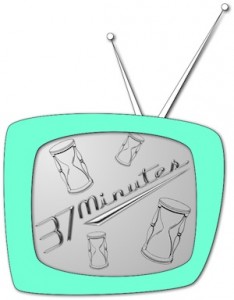 Following the death of Neil Armstrong, people flooded Twitter with tributes, accolades, and stories about the first man to walk on the Moon. Some of them took the opportunity to lament the current state of the space program. A handful seized the moment to call for bold new space initiatives in his honor — my favorite: a petition to hold Armstrong’s funeral on the moon.
Following the death of Neil Armstrong, people flooded Twitter with tributes, accolades, and stories about the first man to walk on the Moon. Some of them took the opportunity to lament the current state of the space program. A handful seized the moment to call for bold new space initiatives in his honor — my favorite: a petition to hold Armstrong’s funeral on the moon.
Inevitably, a few people wondered who Armstrong was, and that sparked the usual hand-wringing and wailing about “the kids today” and all variations thereof. But one tweet that I saw went a step further: it asked, “Who was Neil Armstrong, and what did he ever do for me?”
It was the second question that struck me. The person was asking more than simply who the man was. He was suggesting that Armstrong wasn’t worth knowing about because he hadn’t done anything for that person.
There wasn’t enough room in a tweet — or even a series of tweets — to really give that answer enough space, so I’d like to take this opportunity to posit some examples of what Neil Armstrong ever did for you — and me, and pretty much everyone else, for that matter.
He showed you what you can do when you’re part of something greater than yourself. The call to land on the moon galvanized a lot of people and a lot of resources. It was a call to do something that was frankly heroic: to go somewhere no one had ever been to, and come back and tell us about it. It would require a man to be an ambassador not just of his country, but of his species. It took a lot of training, practice, and effort to be part of that team, and an incredible burden of responsibility on top of the enormous risk. To be willing to not just accept that but to seek it requires a lot of courage.
He showed you what you can accomplish when you’re part of a team. Armstrong may have been the first to take that giant leap for mankind, but he was figuratively standing on the shoulders of giants — and he would have been the first person to acknowledge that. The pioneers of rocketry who devised the vehicle that took him to the moon. The men and women who designed, built, and tested the equipment that carried him there. The dedicated teams of support staff that guided the mission across the void. Armstrong was the most visible member of a team, but hundreds of thousands of people worked to get him there. They trusted him with their machine, and he trusted that they would get him there.
He showed you how to harness your passion. Let’s face it, the idea of being the first human to set foot on another celestial body wasn’t something just handed to Armstrong. The goal motivated a lot of people to seek it, and astronauts in those days had some pretty testosterone-feueled egos. The competition to be the first was enormous. Armstrong, by accounts, was fiercely motivated to be that man. He fought hard for it, but by most accounts he fought fair — he worked his tail off to convince everyone that he would work harder, learn more, and devote himself to a greater extent than his peers. He had a passion to be the first man on the moon, and that passion drove him to excel.
He showed you how to capitalize on your accomplishments. The stories are legion about how Armstrong retreated into a quiet life after the Apollo 11 mission, how he eschewed fame and declined calls to seek political office. Instead, he found ways to put his talents and skills to use as a professor of aerospace engineering, inspiring generations of young kids to dream about maybe one day — perhaps quite literally — following in his footsteps. In other words, Armstrong took everything he had accomplished and all that came with it, and instead of putting it to use for himself, he decided to pay it forward.
That’s what Neil Armstrong ever did for you. And you. And you and you and you and you. And me, too.
Thank you, sir, for your example.


Viewing Neil as a frontman/symbol of the space program, it’s not hard to say he’s responsible for all sorts of advances in technology, many of which have transferred to our everyday lives.
I guess the question I’d want to ask when confronted by that level of narcicissm is “who are you, and what have you done for anyone lately?”
“What Did Neil Armstrong Ever Do for Me? He showed me that “extraordinary” things are possible and they can be done by just about anyone with a lot of hard work and smart people backing you up.